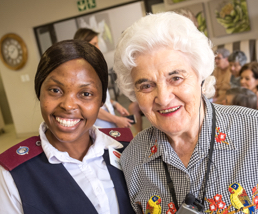
The better life in the UK objectively gets, the more we seem to complain that things seem to beIt ought to be a cause of national celebration but it does not feel that way.



Life in the UK is has objectively improved over the last three years – reflected in everything from falling crime to rising incomes and soaring life expectancy – according to Britain’s official “well-being” index.
But experts at the Office for National Statistics analysing changes in key measures, which range from personal happiness to employment rates or air pollution, have been intrigued to find that the better life seemingly becomes, the less it “feels” that way for many.
The latest round-up of findings from the ONS’s well-being programme shows that out of 43 separate measurers used to assess overall quality of life in the UK, only eight have seen the score go down.
But while the areas of improvement includes a list of objective measures, those where the rating has decreased are dominated by subjective measures, based people’s personal opinions.
For example, while so called Healthy Life Expectancy, the length of time people can typically expect to live in full health, has increased by more than a year for men and over seven months for women since 2009, Britons’ overall perception of their own health has declined rather than improving.
In 2014 only 57.8 per cent of the population described themselves as satisfied or very satisfied with their health – down from 66.3 per cent in 2011.
Similarly the number of crimes against the person plummeted from 82 per 1,000 adults in the financial year ending 2012 to 57 per 1,000 adults last year.
Yet the proportion of women who feel safe walking home at night and the figure for women fell from 64.6 per cent in 2012 to 61.7 per cent last year. The proportions for men were unchanged.
Fewer people also said they were satisfied with their household income, their housing and the amount of leisure time they have.
Glenn Everett, Director of Well-being at the ONS, said: “In many parts of our society life in the UK is improving but we don’t necessarily feel that they are.
“While healthy life expectancy, household income, and crime rates are improving, we have seen people reporting that they are less satisfied with some aspects of their life such as our health, income and leisure time.”
The report confirmed earlier findings that married people are more likely to be satisfied with their lives overall. But, notably, there has been a decline in the number of people who said they had someone they could turn to for help if they had a serious problem.
The ONS remarked in a commentary: “There is a saying, ‘a problem shared is a problem halved’ – so having someone to turn to for company and support in times of need is essential for a person’s well – being.”
What has improved in last three years?
- Crime down
- Unemployment down
- Household income up
- Healthy life expectancy up
- Greenhouse gas emissions cut
- Regular access to green spaces up
But what’s has not:
- Satisfaction with health
- Satisfaction with leisure time
- Satisfied with accommodation
- Proportion with spouse or partner, family member or friend to rely on in event of a serious problem
BY John Bingham
Whilst every effort is taken to avoid errors, the company cannot accept responsibility for the accuracy of any statement, extract or information contained within the sections of this product and or service, nor can any of its contributors who have submitted material for inclusion. The company may update this product and or service and anything described in it without notice. Errors and omissions excepted (E&OE).
